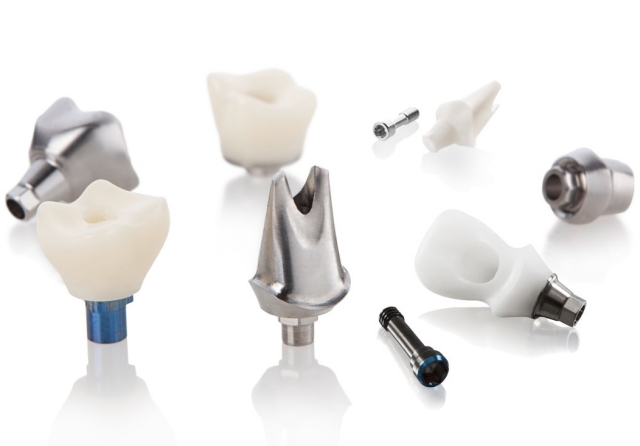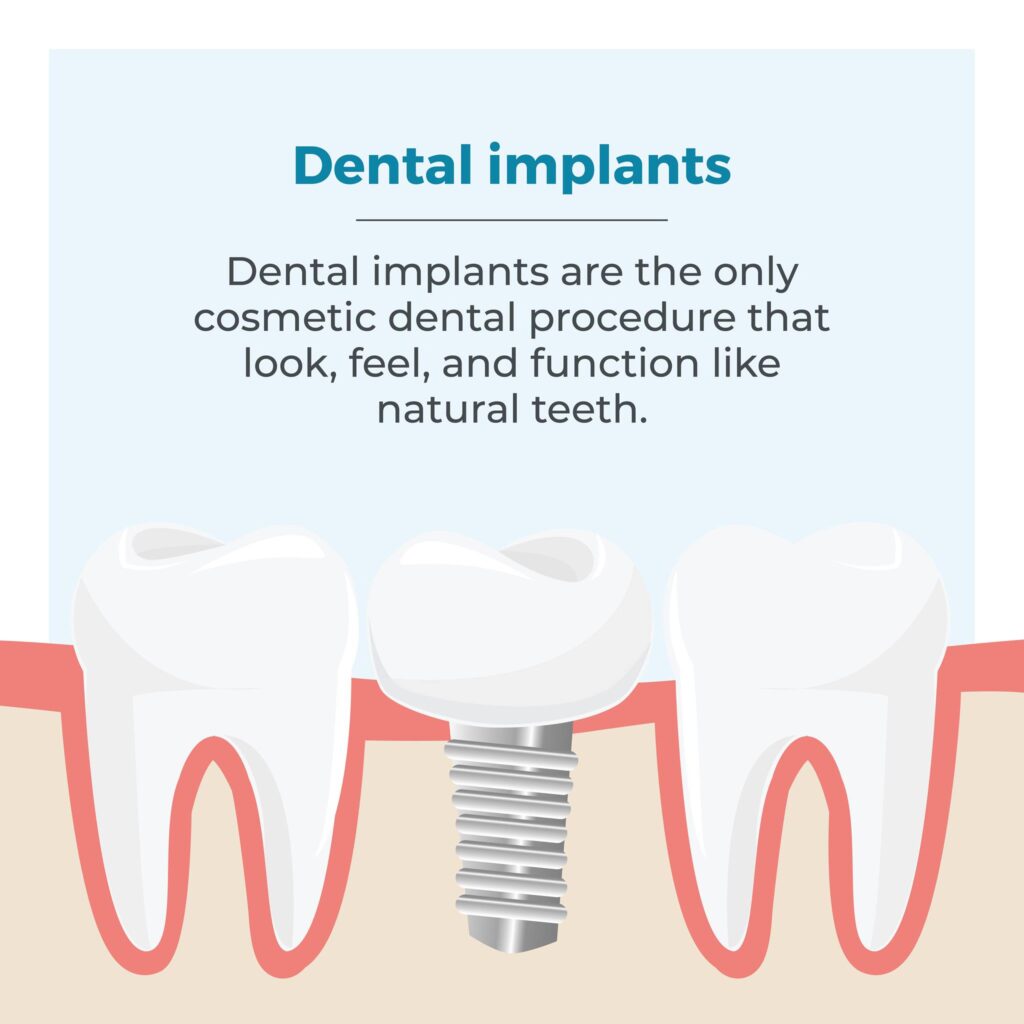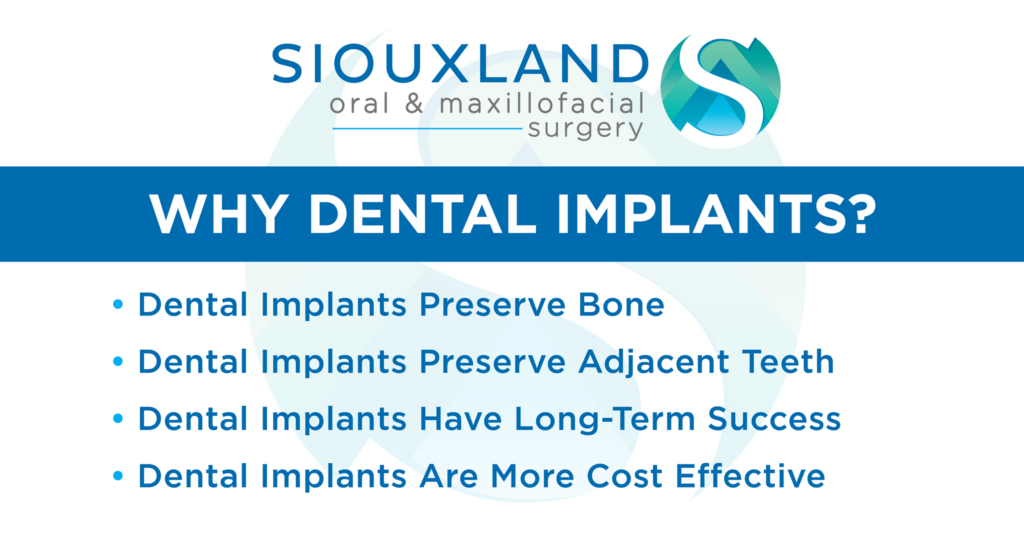Considering dental implants? Here’s what you need to know
Aug. 3, 2022
This paid piece is sponsored by Siouxland Oral & Maxillofacial Surgery.
Dental implants continue to be a hot topic as more and more people begin to learn about them through media outlets and their dentists. In short, dental implants are very much like “little screws” that are inserted into the bone of your jaws, allowed to bond to the bone, and finally a tooth-like prosthetic or denture is attached to them.
Easy right? Well, that’s the short version. The longer version is that there are many different types of dental implants, hundreds of different dental implant manufacturers and many differently trained dental practitioners that place and restore them.
Typically, the process involves your general dentist who is very skilled at dentistry and in making the restoration prosthetics because that is precisely what they were trained to do. Your oral surgeon, on the other hand, completed dental school and an additional four to six years of strict surgical training at a true residency program. Your surgeon performs multiple surgeries daily; therefore, they maintain and hone that complex skill set.
So, you see, if you want the best treatment possible, it takes a team of at least two people: your general dentist and your oral surgeon. In some very straightforward cases, you can have your dentist complete the entire process. Most of the time, however, it takes two, as they say.
There are many different types of dental implants that are indicated for various situations. Most dental implants are made of titanium, some are made of ceramic, some are even so small that they look like toothpicks, and fewer still are made of bioactive glass — those are from Europe only.
Most dental implants look like wood or metal screws, but there are newer ones that “wrap around the bone” and look more like bony plate that you would use to repair a broken bone. There are even implants that are quite long and enter through the bone of your jaw, go through your sinuses and anchor their tip in your cheek bone. So you can see that there are simple implants and rather complex ones. That’s why a team approach to care is vital so that everyone can focus on being really adept at their part.
Why are implants priced differently? Well, honestly, there is no good way to get discount implants. If the product is a lot cheaper at one place, then there’s a reason, and it’s rarely a good one. There is no “Walmart supplier of dental implants” where you can buy the same premium brand. In the dental world, when it comes to products, you get what you pay for.
As previously mentioned, there are hundreds of different dental implant manufacturers, and only a few have been established for decades and are expected to stay in business. This is important because implant parts sometimes fail, and thus you need replacements. If the company is a smaller player in the field and they go out of business, there are simply no more available parts. So when you receive dental implant therapy, make sure you stick with the major dental implant companies for the proper parts. Your oral surgeon will be able to go through that information with you in detail.
Now, this is all a nice segue into the topic of mini-implants. These are dental implants that are less than 3.0mm in diameter. They do serve a vital role in patient care, but they have limitations because, you guessed it, they are quite small — mini, in fact! These implants work well in certain limited circumstances where there is very little room, narrow bone, in frail individuals who can’t withstand bone grafting or as temporary anchorage as you prepare for final implants to be placed after initial healing from a bigger surgery.
The take-home message here is that if someone says you need multiple mini-implants to hold up a denture or maybe a fixed prosthetic, you probably need a second opinion. There are cases where that is appropriate, but they are quite rare. This is where we then circle back to the team approach between your dentist and oral surgeon. Your dentist and surgeon act as a check and balance between what can be done prosthetically to give you teeth and what can be achieved surgically to anchor those teeth. These two thought processes must coincide to yield success.
Remember that second opinions are a good thing. They can validate what your dentist or surgeon originally proposed and offer additional options for your original dentist or surgeon to explore and discuss with you. You deserve to know all your options from a stable prosthetic standpoint and from a true surgical standpoint.
You’ve already chosen your dentist. It is likely someone you like, you trust and has treated you well. When you then choose your surgeon, pick one who has all the surgical skill sets from mini-implants, through standard titanium and ceramic implants, zygoma and staple implants and skeletally anchored implants. If your surgeon doesn’t have all of that in his or her skill set, then you can’t receive the whole picture and know all your existing options.
Please look for our future monthly articles covering a variety of dental and surgical topics.
To learn more about Siouxland Oral & Maxillofacial Surgery, go to siouxlandoralsurgery.com.











